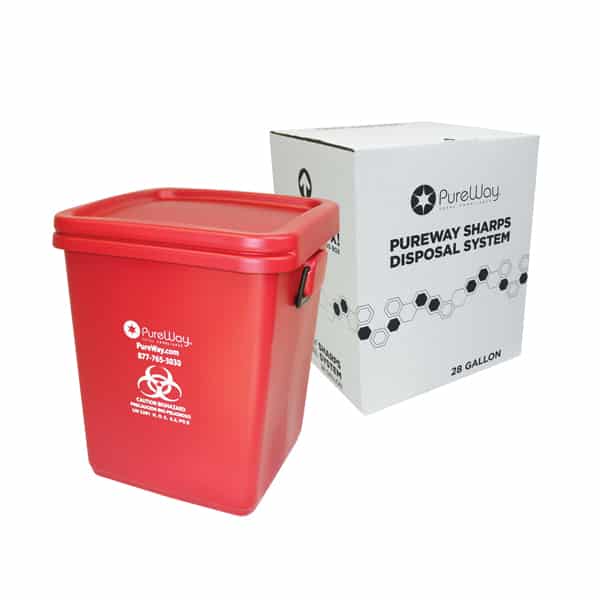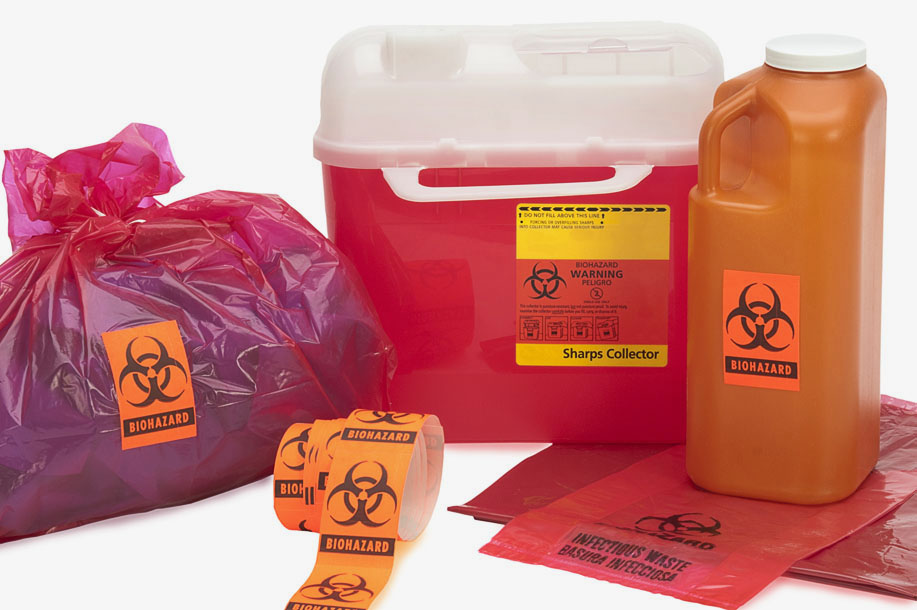Navigating Medical Garbage Disposal: Essential Solutions for Medical Care Facilities
Healthcare facilities, whether huge medical facilities or tiny facilities, are handed over with the obligation of handling, dealing with, and disposing of a large array of clinical waste streams. Understanding the essential solutions that support clinical waste disposal is not simply a matter of compliance but also a basic element in safeguarding public health and ecological wellness.
Regulatory Conformity Assistance
For healthcare centers, guaranteeing governing conformity support is important to keep correct handling and disposal of clinical waste. Sticking to policies set forth by organizations such as the Epa (EPA) and the Occupational Safety and Health Administration (OSHA) is important to avoid environmental contamination, secure public health and wellness, and prevent prospective lawful effects. Regulatory compliance support supplies medical care centers with assistance on exactly how to effectively segregate, store, transport, and get rid of numerous kinds of medical waste in accordance with neighborhood, state, and government policies. This support includes support in producing and applying extensive waste administration strategies, performing normal team training sessions, and performing audits to ensure ongoing compliance. By partnering with regulatory compliance professionals, healthcare centers can remain current on evolving policies, mitigate risks related to incorrect waste disposal, and eventually add to a more secure and more sustainable setting for all.
Waste Partition Guidance

Healthcare centers must provide clear standards and training to team on just how to set apart waste effectively. This includes separating general waste from harmful materials such as sharps, contagious waste, drugs, and chemical waste.
Collection and Transportation Services

Appropriate collection and transportation solutions are necessary elements of the clinical garbage disposal process in medical care centers. These services ensure that unsafe materials are handled securely and in compliance with laws to secure both the atmosphere and public health. Healthcare centers count on specialized waste administration companies to supply efficient collection and transport solutions tailored to their demands.
Clinical waste collection involves segregating various kinds of waste at the factor of generation, utilizing color-coded containers or bags to identify between general, harmful, pharmaceutical, and various other waste streams. As soon as collected, the waste is carried in specialized lorries equipped to deal with dangerous materials safely.
Treatment and Disposal Solutions
In the world of clinical waste disposal for medical care facilities, after the critical phase of collection and transportation services, the emphasis shifts towards executing reliable treatment and disposal solutions. Treatment remedies often involve procedures such as autoclaving, which makes use of steam under stress to decontaminate the waste. This approach is frequently made use of for contagious waste that needs to be made non-hazardous before disposal. One more common therapy method is incineration, where waste undergoes high temperatures in regulated settings to minimize its volume and get rid of pathogens.
Disposal solutions encompass the last step in the medical waste management process. Reusing and source recuperation are additionally gaining traction as sustainable disposal choices for particular kinds of clinical waste products.
Effective treatment and disposal options are critical in making certain compliance with laws and securing public wellness and the atmosphere. Medical care facilities have to carefully assess and pick suitable techniques that line up with their waste administration objectives and sustainability campaigns.
Team Training and Education And Learning

To effectively manage clinical garbage disposal in health care facilities, thorough personnel training and education play a vital duty in making certain adherence to governing demands and maintaining a secure setting. Appropriate training equips team with the understanding and abilities required to deal with different sorts of clinical waste, segregate them properly, and package them firmly for disposal. By informing employees on the threats related to inappropriate handling of medical waste, centers can decrease the likelihood of crashes, contamination, and regulatory offenses.

Final Thought
To conclude, medical care centers count on important clinical waste disposal solutions to make sure regulatory compliance, correct waste partition, safe collection and transportation, reliable treatment and disposal, in addition to team training and education. These services play a crucial role in preserving the health and safety of both medical care employees and the general public, highlighting the value of correct administration of clinical waste in health care setups.
For medical care facilities, making sure regulative compliance support is essential to maintain correct handling and disposal of clinical waste. Waste segregation involves classifying various types Your Domain Name of medical waste to make certain ideal handling, treatment, and disposal. This consists of dividing basic waste from harmful materials such as sharps, transmittable waste, pharmaceuticals, and chemical waste.Clinical waste collection includes setting apart various kinds of waste at the point of generation, utilizing color-coded containers or bags to distinguish in between general, unsafe, pharmaceutical, and other waste streams.In the realm of clinical waste disposal for healthcare centers, after the vital stage of collection and transport solutions, the focus shifts towards implementing reliable therapy and disposal remedies.
Comments on “Tailored Medical Waste Disposal Services: Custom-made Solutions for Your Requirements”